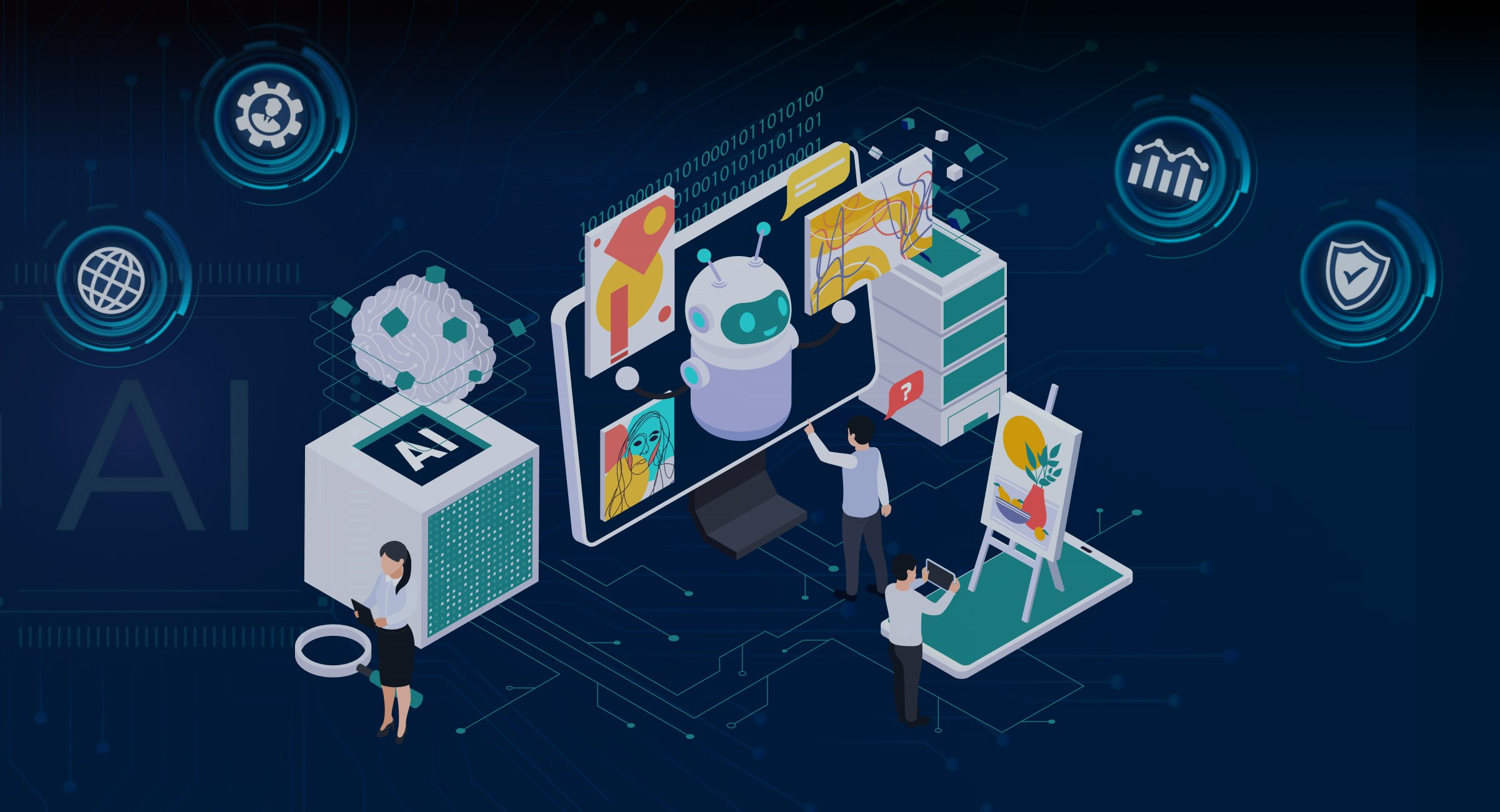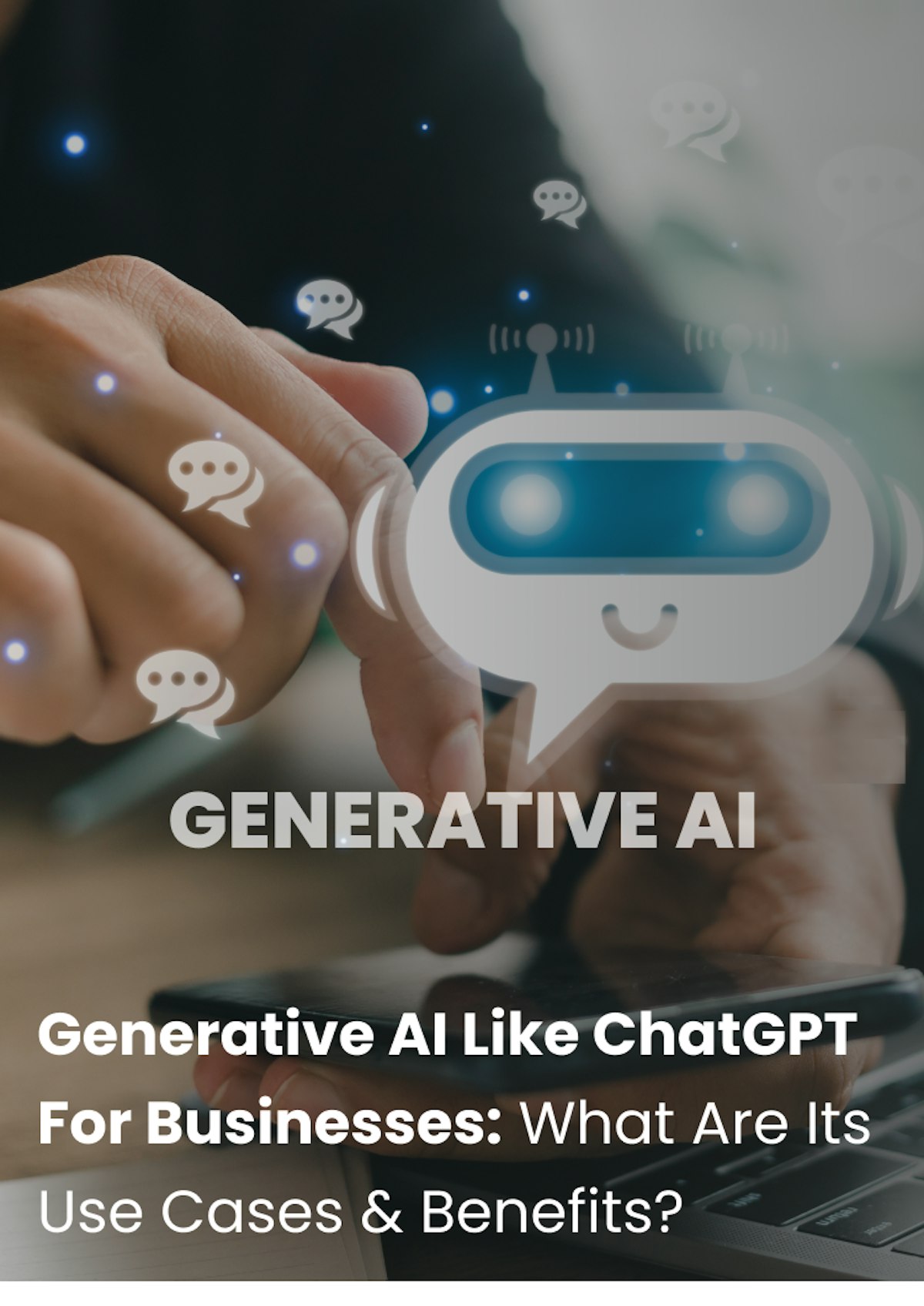Table of Content
AI for New-Age Businesses
As AI continues to grow and innovate, its role in BPA is poised to grow even further. The global business landscape today is rapidly evolving into digital formats, and businesses need the adoption of robust AI-driven solutions to retain their competitive edge.
Incorporating AI in business process automation results in numerous operational advantages.
7 Benefits of AI Adoption in Business Processes
Modern businesses can leverage AI in their workflows today, making their processes highly optimized. Here are seven crucial benefits of utilizing AI in business automation:
1. Enhanced Productivity and Operational Efficiencies
Artificial Intelligence has a unique ability to automate repetitive tasks with better speed and accuracy. This capability helps streamline company workflows and optimize processes for increased productivity.
For instance, a manufacturing company implements AI-powered robotic process automation (RPA) to handle their inventory management. The business can increase operational efficiencies while reducing significant company costs by automating inventory tracking, ordering, and restocking processes.
2. Higher Dependency on Data for Favorable Outcomes
Backed by vast amounts of data, AI empowers businesses with solutions that can analyze various data patterns and trends of your businesses.
Using these insights, companies can formulate effective business strategies with higher precision, leading to more favorable outcomes.
For instance, an AI-based solution analyzes customer purchase history and browsing behavior. Based on the data, companies can build product recommendation engines and marketing campaigns for their users and increase the chances of sales conversions.
3. Seamless Integration with Tools and Technologies
Every industry or business today leverages various tools and technologies to conduct its operations. The hefty costs invested in these tools don’t allow them to change to a new digital solution completely.
Fortunately, AI-based solutions are highly capable of seamlessly integrating with different tools and technologies. Whether it's CRM systems, ERP software, or project management platforms, they can be easily incorporated into your systems and ensure smooth functioning across various platforms.
4. Faster & Strategic Decision Making with Predictive Analytics
Gen AI In Business Automation has significantly transformed companies' decision-making processes by leveraging predictive analytics. Gen AI harnesses ML and NLP capabilities to analyze vast datasets in real time and identify patterns to forecast future outcomes.
Having insights into market trends, customer behavior, and business performance allows business managers to address challenges and capitalize on opportunities proactively.
For example, A financial services firm incorporates an AI-driven predictive analytic solution to forecast market trends and identify investment opportunities. By leveraging real-time data and predictive models, the business can make faster and more strategic investment decisions and maximize returns for its clients.
5. Scalability and Continuous Improvement
AI solutions are inherently scalable and capable of handling increasing workloads and adapting to changing business needs. This is an excellent capability as business needs keep shifting and altering with the evolving business landscape.
Incorporating AI in business automation enables your business to stay at the forefront as AI systems continuously learn and improve over time. This means by refining your AI algorithms, the processes can be fairly optimized to achieve new parameters and deliver better results and performance.
6. Improved Accuracy & Consistency in Workflows
AI is one of the smartest technologies, with an extremely high level of accuracy and reliability. This capability enables AI to conduct business processes with minimal errors and inconsistencies.
AI-based solutions can be used to:
Automate repetitive tasks with precision
Maintain consistency in operations
Adhere to regulatory requirements
Deliver high-quality products and services to customers
Maintaining these parameters results in swift and uninterrupted work operations and ensures optimal business outcomes.
7. Reduction in Operational Expenses
Automation in business processes also leads to a significant reduction in operational expenses. AI enables businesses to optimize their work processes with fewer errors and better data-driven decisions.
This allows businesses to streamline resource allocation while achieving cost savings across various operational areas. Ultimately, using AI-based solutions leads to improved profitability and sustainability in the long run.
Implementing AI in Your Business Processes
Now that you are aware of the multitude of benefits of using AI in business process automation, here are the steps needed to adopt AI to your workflows:
1. Begin by Identifying the Right Processes for Automation
Conduct a comprehensive assessment of your current business workflows to pinpoint areas where AI can bring the most significant benefits. Look out for tasks that are repetitive, time-consuming, or prone to human error.
2. Determine How Operational Efficiency Can be Enhanced Using AI
The next step is to understand what type of AI solution is required to boost your operational efficiency. Thoroughly research and determine which AI-based solutions and technologies can help your company streamline tasks, improve decision-making, and optimize resource allocation.
3. Identify Technical Challenges
It includes determining data quality and accessibility, compatibility issues with the current system, and identifying integration hurdles. Make a list of all the technical challenges and discuss them with a reliable AI development company.
4. Partner with AI Experts to Develop Custom AI Solutions for Improved Workflows
After you have a clear understanding of your goals and objectives and have proper information on technical challenges, it is time to find reliable AI experts who can build custom AI solutions for your processes. This could involve building AI models from scratch or customizing existing ones to suit your specific requirements.
Find Top-Tier AI Developers for Business Process Automation!
5. Deploy the AI-based Solution
Finally, after completion of the design, development, and testing phase of your solution, deploy the AI application to your live servers. Monitor performance post-deployment and iterate as needed to optimize efficiency and maximize the benefits of AI automation. Remember, continuous improvement is critical to harnessing the full potential of AI in your business processes.
Use Cases of AI in Business Process Automation
Modern businesses vouch for quick and profitable outcomes, and AI is the way to do that.
Here are some compelling use cases of AI in Business Process Automation you must know about:
Leverage AI for your Business Goals!
Explore ServicesReady to Leverage AI in Business Process Automation?
AI in business automation heralds a new era of efficiency, innovation, and competitiveness. Having tremendous transformative potential, AI-based solutions can streamline operations, improve productivity, and unlock new growth opportunities for businesses. Hence, businesses must embrace AI solutions and boost the efficiency of their workflows for improved outcomes. Contact AI experts from Intuz to discuss your business requirements for AI-based solutions.





